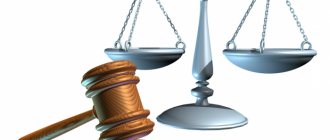The judiciary is one of the three branches of government that protects human and civil rights and resolves conflicts between subjects of legal relations. It plays a major role in the state apparatus (or the country itself as a whole), since it regulates the most significant aspects in the life of every citizen. It has a direct connection with the Federal Penitentiary System (develops punishment for offenders). The active subjects include the judiciary.
Judicial authorities
The judicial authorities are considered to be a system of government bodies whose main task is to administer justice. The Constitutional and Supreme Court are the highest bodies of the judicial system. This also includes disciplinary judicial presence. Moreover, the system has many branches and subsystems. For example, the Prosecutor's Office of the Russian Federation played a special role. It is a separate government structure. One of its tasks is to monitor compliance with laws and the Constitution. In court, the prosecutor's office acts as a public prosecutor and imposes punishments. The prosecutor's office has the right to exercise its powers without the knowledge of the judicial, executive or legislative systems, since it does not belong to any of them.
Selective cassation
By way of selective cassation, a sentence or other final judicial decision of a magistrate, district or garrison military court, as well as a sentence or other final judicial decision of the Supreme Court of a republic, a regional or regional court and equivalent courts passed in an appellate court may be reviewed in the Supreme Court. procedure, if these decisions have already been considered in the cassation court.
Sun o. That is, the cassation instance will be able to make a decision regarding the sentence of a person who was also involved in the case, but did not file a cassation appeal (having previously notified the person whose interests are affected). Moreover, when checking the legality of the decision (from the point of view of the application of the law, and not the evidence in the case), the court can go beyond the arguments presented in the cassation appeal or presentation.
“The cassation court is not bound by these arguments and has the right to check the criminal proceedings in full,” explained the RF Supreme Court. “In any case, going beyond the arguments of the complaint and presentation is allowed only in the direction of improving the position of the convicted, acquitted, person against whom the criminal case has been terminated, or another person against whom cassation proceedings are underway.”
The resolution of the plenum will be adopted after making editorial changes after discussion.
Legislative, executive and judicial branches
The legislature develops, considers and passes various bills for the state to control public order. It is worth noting that the legislative and judicial systems are closely related: the legislative system enacts bills, and the judicial system approves and supports them. The legislative branch plays an important role in establishing the legal status of the court and the entire state system. Legislation appoints senior positions and exercises budgetary control.
The executive branch sets rules to ensure compliance with government bills. If we talk about the relationship with the judicial system, it is quite diverse. The judicial power is aimed at ensuring the protection of the civil life of society, defending their interests, and maintaining order. The court controls the interests of the executive branch, which in turn provides the material base and creates favorable conditions for judicial activity.
Appointment of judges
It is worth understanding how judges are appointed today. It all depends on where exactly they are assigned. But in any case, the decision is made by representatives of the legislative branch of government. In this case, the appointment occurs on the recommendation of the panel of judges, since the representatives of the structure who are responsible for the distribution of positions cannot know all the candidates personally. Thus, the members of the board decide between themselves who is worthy of being in a particular judicial body.
Justices of the peace are appointed by the city or regional council of deputies. At the same time, the name of the legislative body in a subject of the Russian Federation may differ, based on the characteristics of its historical development. The term of appointment is 5 years, but upon first receiving the position, the duration of office is only 3 years. When it comes to federal judges, they are appointed by presidential decree.
Regardless of the rank of an employee, he is required to meet certain requirements that are specified in the law. It is also required that citizens in their work be guided by established rules of law when making decisions. If there are no complaints about the specialist’s work during one term of office, then they are automatically extended for another 5 years. If you want to get promoted, then you need to take another exam on your knowledge of the laws, taking into account the peculiarities of the work of a particular court.
Deputies are discussing the issue of appointing a judge to the position
The main reason for a raise is considered to be an increase in salary. And upon retirement due to length of service, the pension will be significantly higher. Today, judges' pensions amount to 80% of their average monthly salary. Thus, the monthly income of the former judge is quite high.
How to remove a judge from office - step-by-step instructions
If a judge no longer meets the requirements of the law, he must be removed from office. This happens according to the established order. At the same time, it is important to comply with procedural norms if the citizen himself does not submit a letter of resignation. When you have your own request, it must be accepted by a higher structure. However, there is a procedure for removal from office when a citizen has broken the law, acquired a second citizenship, or does not meet another mandatory requirement.
Step 1
Receiving information that one of the judges can no longer perform his professional duties due to non-compliance with standard requirements.
Receiving information that one of the judges can no longer perform his professional duties
Step 2
Consideration of the case by the High Qualification Board of Judges.
Consideration of the case by the High Qualification Board of Judges
Step 3
Making a decision to suspend or terminate the powers of a judge.
Making a decision
Here are the main reasons to stop working in the judiciary:
- personal statement;
- health status (the appearance of chronic diseases that prevent you from performing professional duties);
- moving to another job;
- reaching 70 years of age;
- obtaining a second citizenship or losing Russian citizenship;
- death;
- entry into force of a decision on criminal punishment;
- running for elected office or starting your own business;
- refusal to transfer to another judicial area due to the reorganization of a structural unit or its elimination;
- disqualification based on a decision of the highest panel of judges.
Thus, the position of a judge is not eternal. If there are factors that do not allow him to continue his professional activities, he is quickly removed from his position. Therefore, it is important to carefully monitor your reputation and the reputation of your relatives in order to maintain your position.
The judicial system in the Russian Federation
The Russian Federation is characterized by a branched judicial system, representing an association of courts with common functions and activities. Based on the law “On the Judicial System of the Russian Federation” according to the territory of its coverage, all judicial entities are divided into federal courts - Supreme and Constitutional, regional, district, military, special and regional within federal cities.
The judicial power of the Russian Federation is considered to be autonomous and exists free of legislative and executive power. Russia has the following court system:
- statutory and constitutional (headed by the Constitutional Court) – conduct constitutional control;
- general jurisdiction (main Supreme Court) - perform all types of legal proceedings;
- arbitration courts (the main Supreme Arbitration Court) – deal with legal disputes.
Complete cassation
The procedure for complete cassation includes sentences or other final decisions in criminal cases passed by courts of constituent entities of the Russian Federation or district (naval) military courts at first instance, even in cases where they were not appealed, as well as decisions of appellate courts that reviewed such decisions of the first instance.
The Plenum explained that although the Code of Criminal Procedure prohibits filing a repeated cassation appeal, this prohibition cannot be considered “as a basis preventing the identification and elimination of errors indicating the unfairness of the court’s decision.” If repeated cassation appeals “show grounds for canceling or changing the court decision,” such a complaint can be considered at an even higher instance (in the judicial panels for criminal cases or for military personnel of the Supreme Court), but “in the order of selective cassation,” when the judge of this panel decides whether it is acceptable for consideration.
Functions of the judiciary
The judicial system performs many tasks aimed at establishing justice, fairness, and regulating order. Among the most important functions it is worth highlighting:
- analysis of administrative, civil, constitutional and criminal cases in the manner established by procedural legislation;
- interpretation of legal norms, creation of precedents, as well as the formation of proposals for improving the judicial system;
- certification of legal facts;
- control of powers.
In addition, the powers of the judiciary are conventionally divided into leading (basic) and additional:
- leading – execution of justice, constitutional supervision;
- additional – monitoring the legality and constructiveness of the regulation of the activities of government bodies, execution of sentences, participation in the creation of the judiciary.
Functions of the court in the state
The main function of the court is justice , that is, the consideration and resolution of legal disputes. The latter can be civil, criminal, economic, military and others, depending on the scope of the violated rights of the participants.
Additionally, legal scholars identify the following functions of the court :
- Control . Includes checking the legality of the actions of the inquiry officer, investigator, prosecutor and other law enforcement officials. Judicial control also includes consideration of appeals and cassation complaints against decisions of lower authorities, analysis of the quality of evidence.
- Corrective . Covers consideration of issues relating to the execution of the decision. For example, the judge can defer it or release the convicted person from serving his sentence.
- Organizational.
Involves the exercise by the judge of powers to direct the court hearing. For example, explaining the procedural rights and obligations of participants, determining the sequence of speeches.
- Educational . Formation of respect among citizens for the judiciary and laws. Outwardly, it manifests itself in strict adherence by the participants in the process to “ritual” norms (for example, the use of the address “Your Honor”).
Also in a number of sources you can find references to other functions : law enforcement, law enforcement, regulatory, compensatory, restorative, preventive, interpretation of law.
The main debate among scientists boils down to whether such areas of activity are considered independent or attributed to justice.
First instance
Let's move on to the vertical structure of justice. The consideration of the dispute begins in the court of first instance in accordance with the strict canons of the arbitration/civil/administrative or criminal procedural code of the Russian Federation
. The names contain answers to the questions of which court and which procedural document to adhere to. Each court has its own Code and, I would like to add, honor. But no, honor is still a universal concept. Deviation from the prescribed rules on the part of any participant in the trial may cause him to be given a technical defeat.
Based on a comprehensive consideration of the dispute: written and oral explanations of the parties, court requests, responses to them, witness testimony, expert opinions, listening or viewing audio and video media, other evidence, the list of which, by the way, is open, the court of first instance makes its decision. The court's decision must be reasoned
, that is, contain references to the rules of law on which the court’s position is based. The court also sets out the arguments of the parties and the reasons why some arguments are given preference over others.
The said decision comes into force
within thirty days from the date of adoption by the court in final form. And before that, it can be challenged in a higher instance - in the court of appeal, by filing an appropriate complaint.







